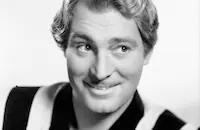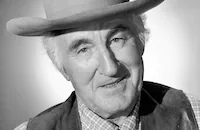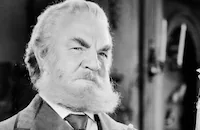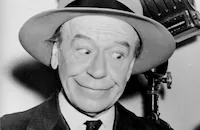Parnell

Brief Synopsis
Cast & Crew
John M. Stahl
Clark Gable
Myrna Loy
Edna May Oliver
Edmund Gwenn
Alan Marshall
Film Details
Technical Specs

Synopsis
In 1880, Charles Stewart Parnell returns to his native Ireland after a lengthy visit to the United States. Hailed by his people as "the uncrowned King of Ireland," he is hated by the English for his stand on home rule for Ireland. He is arrested for perdition, but is released after the next election to serve in the House of Commons. While he is in prison, Captain William O'Shea and his patron, The O'Gorman Mahon, go to see him in hopes of securing Parnell's help with O'Shea's political career. When they are both serving in the House, O'Shea convinces his wife Katie, for whom he cares little, to invite Parnell to dinner. Hearing Parnell speak, Katie is immediately impressed by him and after their meeting, he is impressed by her as well. When he is accused of being responsible for the notorious Phoenix Park murders of two English officials some years before, he welcomes an investigation because he is innocent. He then returns to Ireland to calm the people who were starting to turn against his words in favor of action. On his return to England, Parnell is too ill to go to dinner at the O'Sheas', so Katie brings him to her estate in the country. At the inquiry into the murders, a caligrapher named Pigott swears that a seditious letter is written in Parnell's handwriting. Katie finds a letter written by Pigott to Parnell that has the same word misspelled as the phony letter and Pigott is revealed as a forger. Asking to be excused from the court, Pigott then commits suicide. Parnell is then exonerated and has the support of Prime Minister Gladstone, who promises Home Rule. Just as Parnell and Katie are about to leave for a dinner party at Gladstone's home, however, they are served with papers that name Parnell a corespondent in O'Shea's divorce case against Katie. Gladstone refuses to speak with Parnell when the scandal breaks and most of the members of Parnell's own faction turn against him. Fearing that his personal scandal will ruin Ireland's political situation, all but a few of his closest advisors seek another leader. During a heated argument with his colleagues, Parnell has a heart attack. Though Campbell, his devoted secretary, wants to summon Katie, Parnell insists on going to her. A short time later, as he faces death, he calls his men to him and offers them advice on the future of their country. After they leave, he dies, with Katie by his side.

Director

John M. Stahl
Cast

Clark Gable

Myrna Loy

Edna May Oliver

Edmund Gwenn

Alan Marshall

Donald Crisp

Billie Burke

Berton Churchill

Donald Meek

Montagu Love
Byron Russell
Brandon Tynan
Phyllis Coghlan
Neil Fitzgerald

George Zucco

Eily Malyon
Erville Alderson
Russell Simpson

Halliwell Hobbes

J. Farrell Macdonald
Pat Moriarity
Murray Kinnell
D'arcy Corrigan
Dermott Quinn
Jack Kennedy
Tom Mahoney
Drew Demorest
Jack Murphy
Joe North
Pat Flaherty
David Macdonald
Thomas Carr
Leo Mccabe
Pat O'malley
James Blaine
William Stack

Leonard Mudie
Zeffie Tilbury
Ricardo Mandia
Ian Maclaren
Tyrone Brereton
Ramsay Hill
Geordie Mackay
Robert E. Homans
Wade Boteler
Charles Mcnaughton
Otto Fries
Douglas Gordon
Yorke Sherwood
Joseph R. Tozer
Tom Ricketts
Jimmie Mcelveen
Dick Elliott
Alec Craig
Rita Page
Wally Maher
Frank Sheridan
Sr. Frank Mcglynn
Robin Adair
Craufurd Kent

Charles Irwin
Pat Somerset
Keith Kenneth
Frank Baker
Jameson Thomas
Lumsden Hare
Frank Elliott
Marion Ballou
Speirs Ruskell
George Cowl
Leyland Hodgson
Olaf Hytten
Corbet Morris
Crew
Adrian
Dr. William Axt
S. N. Behrman
Jimmy Burbridge
Lenore Coffee
Karl Freund
Cedric Gibbons
William A. Horning
Captain Gerard William Henry O'shea
Douglas Shearer
Frederick Y. Smith
John M. Stahl
John M. Stahl
John Van Druten
Edwin B. Willis

Videos
Movie Clip



Film Details
Technical Specs

Articles
Parnell
The life of Charles Stewart Parnell (1846-1891), the Irish statesman whose heartfelt and nearly-realized ambitions to obtain home rule for his country foundered on his scandalous relationship with a married woman, became the basis for a popular Broadway play in the '30s. MGM was only too happy to option the property as worthy of their leading male star; the noted playwrights John Van Druten and S.N. Behrman were engaged to adapt the late Elsie T. Schauffler's stage success.
The story opens as Parnell (Gable) is winding up his 1880 visit to the United States, in which he was wildly successful in gaining popular and financial support for the efforts of his National Land League. His return to Ireland's shores finds him immediately jailed by the British government for seditious speech; it does little to break his stride, as the parliamentarian and his cronies (including Donald Crisp and Edmund Gwenn) very efficiently run the party's affairs from his cell. It's here that Parnell receives the unwelcome solicitations of Capt. Willie O'Shea (Alan Marshal), an oily and moneyed political tyro who wants to curry the "Uncrowned King of Ireland's" favor for his own ambitions.
In response to Parnell's indifference, Willie calls upon the considerable charms of his estranged wife Katie (Myrna Loy), hoping that her delivery of a dinner invitation would be more difficult to resist. Watching Parnell taking the floor at Parliament, she's struck by his courage in confronting Prime Minister Gladstone (Montagu Love). Upon their introduction, she's further moved by his confession of seeing her for the first time. "It's a beautiful scene," Loy would recall in her autobiography Being And Becoming. "You can feel the beginning of the love that would rock the British Empire." Their relationship intensifies when Parnell is indicted for complicity in the notorious political assassinations known as the Phoenix Park murders. Not only does Katie stand by him, she delivers the exculpatory evidence.
While Gable was earnest in his efforts, he never appeared to find a comfort level in the role. His attempts at affecting a brogue can be charitably deemed inconsistent, and this most macho of movie stars seemed ill at ease with revealing a more sensitive side to his character. "I learned about another side of him at that time," Loy recalled for Gable biographer Lyn Tornabene in Long Live the King. "He was a man who loved poetry and fine literature, read it, and knew it. He would read poetry to me sometimes during breaks, but he didn't want anyone to know it." Gable, of course, shrugged off the critical and popular response to Parnell, and resolved never to take on any similar period project. Fortunately, he was persuaded to change his mind later when he was offered the role of Rhett Butler in Gone With the Wind (1939).
Loy recalled in her autobiography that Joan Crawford had been slated for the role of Katie O'Shea, and that she herself had been originally tapped for The Last of Mrs. Cheyney (1937). MGM flipped the assignments, Loy opined, because of adverse public reaction to Crawford's efforts in the historical drama The Gorgeous Hussy (1936). Years later, Loy still bristled at the public hostility that dictated the studio's decision and the casting of Parnell. "Disgruntled fans wrote to the studio by the thousands--they did that in those days," she recalled. "Some of the critics complained that we played against type. We were actors, for God's sake. We couldn't be Blackie Norton and Nora Charles all the time."
Producer/Director: John M. Stahl
Screenplay: John Van Druten, S.N. Behrman, based on the play by Elsie T. Schauffler
Cinematography: Karl Freund
Film Editing: Fredrick Y. Smith
Art Direction: Cedric Gibbons
Music: William Axt
Cast: Clark Gable (Charles Stewart Parnell), Myrna Loy (Mrs. Katie O'Shea), Edna May Oliver (Aunt Ben Wood), Edmund Gwenn (Campbell Parnell's Secretary), Alan Marshal (Captain William O'Shea), Donald Crisp (Michael Davitt).
BW-119m. Closed captioning.
by Jay Steinberg

Parnell
Quotes
Trivia
The original play opened in New York on 11 November 1935.
Joan Crawford was originally assigned the role of Katie O'Shea but left before shooting began because of differences with director John M. Stahl. She switched roles with Myrna Loy, who had been assigned to Last of Mrs. Cheyney, The (1937).
The film lost $637,000 at the box office and is considered by many to be the worst flop in Clark Gable's and Myrna Loy's distinguished careers.
To get Gable and Loy in the mood for the sad ending of the movie, the director put on sad music over and over again. Gable complained to then-girlfriend 'Carole Lombard' and the next day instead of the regular music a jazzy version of "I'll Be Glad When You're Dead, You Rascal You" started playing.
Notes
According to contemporary news items, M-G-M originally purchased Elsie T. Schauffler's play in early 1936 as a possible vehicle for Brian Aherne. In July 1936, Patric Knowles was tested for the role that eventually went to Clark Gable. Actor Hugh Buckler, who died in an automobile accident just prior to the start of production on Parnell, was supposed to play a featured role in the picture. Joan Crawford, who originally was cast in the role of "Katie," left the production just before shooting began because of differences with director John Stahl on the interpretation of her character. At that time she took over Myrna Loy's role in The Last of Mrs. Cheyney and Loy took over Crawford's role in Parnell. A production chart in Hollywood Reporter on December 7, 1936 listed Tully Marshall in the cast, but his participation in the released film has not been confirmed. While most non-musical M-G-M films of the period were shot on a four or five week schedule, it took over three months to complete filming on Parnell. Hollywood Reporter news items indicate that filming stopped for about three weeks in late February and early March 1937 while addtional script work was done. The film received a number of bad reviews, among them Variety's which called it "dull entertainment," and New York Times's which said that Parnell was "singularly pallid," but it also received some excellent notices, including that in Daily Variety which called it a "brilliant trophy" for M-G-M.
The film was not listed in any "best film" lists or box office champions' lists, and is frequently mentioned in modern sources as the biggest "flop" of Gable and Loy's otherwise thriving careers at the time. According to information in the Howard Dietz Collection at the AMPAS Library, the film cost $1,547,000 and grossed $1,576,000, resulting in a net loss for the studio of $637,000. Life magazine featured the picture as its "film of the week" in June 1937. The article on the picture mentioned that the many "character extras" used for the film received Ten dollars per day for their work. The pressbook for the film noted a commercial tie-in between it and the General Mills Co., makers of the popular "Bisquick" baking mix, which featured pictures of prominent M-G-M stars, among them Gable, on their boxes. An unidentified note in the AMPAS library file on the film noted that Jack D. Moore was an uncredited set decorator on the film. The story of Charles Stewart Parnell and Katie O'Shea was also the basis for a BBC mini-series, produced in 1990, that was shown in the United States on PBS television from December 1991 to January 1992. That production, entitled Parnell and the Englishwoman, starred Trevor Eve as Parnell and Francesca Annis as Katie.














